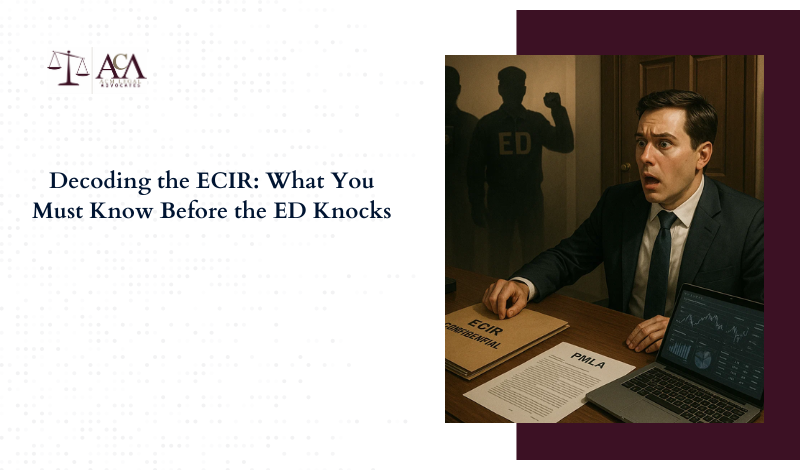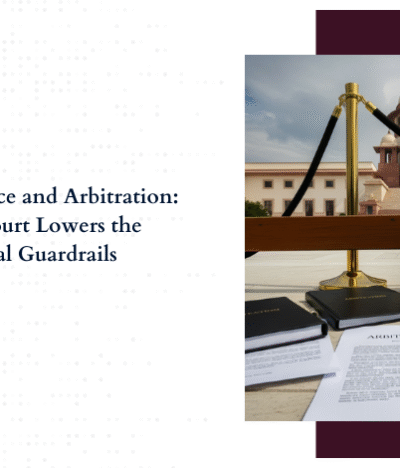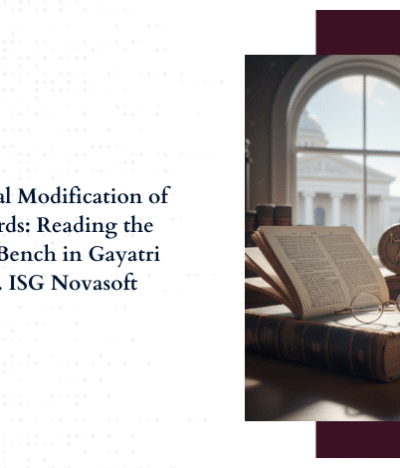With respect to the economic offences, the Enforcement Case Information Report (ECIR) is a powerful but often misunderstood tool wielded by the Enforcement Directorate (ED) under the Prevention of Money Laundering Act, 2002 (PMLA). Unlike a First Information Report (FIR) under the Code of Criminal Procedure, the ECIR is shrouded in confidentiality and can initiate wide-ranging investigative actions, including searches, seizures, and arrests. For individuals or businesses facing scrutiny in an ED investigation in Delhi or elsewhere, understanding the implications of an ECIR—and the legal distinctions of ECIR vs FIR—is crucial to safeguarding one’s legal rights and assets.
This article offers a comprehensive yet concise breakdown of what an ECIR entails, why it is not disclosed to the accused, and how preemptive legal counsel can be your strongest defence in cases under PMLA.
Understanding the ECIR: A Confidential Trigger to ED Investigations
An ECIR is not defined in the PMLA, yet it forms the backbone of any ED investigation related to money laundering offences. When the ED receives credible information about the commission of a scheduled offence—typically based on a predicate FIR filed by other enforcement agencies like the CBI or Police—it registers an ECIR to begin its probe under Section 3 and 4 of the PMLA.
Crucially, the ECIR:
- Is an internal document of the Enforcement Directorate.
- Is not shared with the accused, as clarified by multiple judgments including the Supreme Court’s ruling in Vijay Madanlal Choudhary v. Union of India (2022).
- Triggers the ED’s powers of summons, attachment of properties, and arrest, even before a chargesheet is filed in court.
This lack of transparency has invited much legal debate, especially concerning the rights of the accused. Unlike in traditional criminal law, where an FIR is mandatory for initiating prosecution, the ECIR operates in a legal grey zone—enabling the ED to proceed without notifying the person under investigation.
ECIR vs FIR: Key Legal Differences
Understanding ECIR vs FIR is essential in the context of money laundering investigations. While both serve as entry points into formal investigation, they differ significantly in terms of procedural transparency, legal disclosure, and statutory backing.
| Aspect | FIR (CrPC) | ECIR (PMLA) |
| Defined in Law | Yes – Section 154 CrPC | No explicit provision under PMLA |
| Copy to Accused | Must be provided under CrPC | Not disclosed – internal ED document |
| Public Record | Yes – available to accused and court | No – highly confidential |
| Judicial Scrutiny | Can be quashed under Article 226/482 | Can be challenged indirectly, e.g. through bail |
| Triggering Authority | Police Station | Enforcement Directorate |
The secrecy surrounding ECIRs has led to serious legal and constitutional questions about the accused’s right to fair trial and defence. However, courts have thus far upheld the ED’s stance citing the need for confidentiality to ensure effective investigation.
Legal Implications of an ECIR: When ED Comes Knocking
Once an ECIR is registered, the ED is empowered to initiate wide-ranging actions without prior judicial oversight. This includes:
- Issuance of Summons under Section 50 – Individuals can be summoned for deposition and production of documents. Non-compliance can lead to penal consequences.
- Search and Seizure – Under Section 17, the ED can conduct search and seizure operations without a magistrate’s warrant, if they believe evidence may be destroyed or concealed.
- Provisional Attachment of Property – The ED can attach immovable and movable assets under Section 5 of PMLA, if they are considered proceeds of crime.
- Arrest Without FIR Disclosure – Under Section 19 of the PMLA, arrest can be effected based on “reason to believe” by the ED officer. Courts have held that disclosure of the ECIR is not mandatory even at this stage.
- Burden of Proof on Accused – Unlike general criminal law where the prosecution must prove guilt, under PMLA, the burden often shifts to the accused to show that the assets are not derived from criminal proceeds.
These aggressive powers underscore the importance of preemptive legal action and understanding the nuances of ED investigation in Delhi or any other jurisdiction.
Preemptive Legal Strategy: Why Early Legal Advice Is Critical
Given the opaque nature of ECIRs and the ED’s sweeping powers, securing timely legal counsel becomes not just advisable but essential. Individuals and entities linked to predicate offences or suspects in financial irregularities should proactively engage white-collar crime or PMLA-specialised counsel—particularly if under the scanner in an ED investigation in Delhi, Mumbai, or other enforcement-intensive zones.
Key steps for individuals under potential ED scrutiny include:
- Legal Risk Audit: Assess whether any transactions or entities under your control are linked to scheduled offences under the PMLA. These include offences listed in the Schedule to the Act such as those under IPC, NDPS, Companies Act, FEMA, Customs Act, etc.
- Document Preservation: Ensure all transaction records, source of funds, company books, and digital communications are maintained in order and made easily accessible. Any missing records could be construed as deliberate suppression.
- Anticipatory Bail: In high-risk scenarios where you suspect ED action is imminent, legal counsel may advise you to file for anticipatory bail even before an arrest under PMLA takes place.
- Challenge to Property Attachment: If the ED provisionally attaches your assets, immediate filing of objections before the Adjudicating Authority under Section 8 is critical. Delay may weaken your claim to ownership or legitimate source.
- Responding to Summons: A Section 50 summons must be dealt with seriously. Failure to appear or provide documents can trigger penal proceedings under PMLA and may be used to justify arrest.
- Maintaining Silence and Confidentiality: Legal strategy often includes advising clients to avoid unnecessary disclosures to ED officials without vetted legal representation. Statements under PMLA have evidentiary value and can be used in trial proceedings.
- Public Relations and Reputation Management: Since ECIRs are not public documents, a premature media strategy may backfire. Legal advice should guide whether to make a public statement or maintain a defensive posture.
The ED Investigation Landscape in Delhi
Delhi, being the seat of the central government and headquarters of major financial institutions and enforcement bodies, sees one of the highest volumes of ED investigations in India. Cases involving cross-border transactions, political funding, real estate, public-private partnerships, and shell company operations are regularly investigated here.
Several high-profile arrests and property seizures linked to ECIRs have taken place in Delhi in recent years, making it imperative for individuals and businesses operating here to stay legally fortified. The Delhi High Court has consistently played a critical role in deciding issues relating to ECIR disclosures, arrest legality, bail, and property attachments under PMLA.
Notable trends in ED Investigations in Delhi include:
- Increased scrutiny of startup and fintech funding sources
- Crackdown on benami property ownership
- Proactive attachment of assets before trial
- Summoning of CA firms and legal advisors of accused entities
Given this legal climate, navigating an ED investigation without prior awareness of ECIR mechanics could be perilous.
PMLA ECIR Explained
Though ECIRs fall outside the conventional definition of a formal complaint or FIR, their legal weight is substantial. Hence, understanding their procedural context under the Prevention of Money Laundering Act (PMLA) is essential for mounting an effective legal response.
Key Legal Aspects Under PMLA:
- Section 3 – Definition of Money Laundering: It criminalises direct or indirect involvement in any process connected with the “proceeds of crime”. The ED relies on this section post-ECIR registration to initiate inquiries.
- Section 5 – Attachment of Property: Upon “reason to believe” that any property is linked to crime proceeds, the ED may provisionally attach it for 180 days, subject to confirmation by the Adjudicating Authority.
- Section 17 – Search and Seizure: ED can search premises and seize documents or valuables without a magistrate’s warrant if there is a risk of concealment or tampering.
- Section 19 – Power to Arrest: ED officers can arrest any person if they believe the person is guilty under Section 3. No obligation to supply a copy of ECIR has been enforced by courts.
- Section 50 – Summons and Statements: Individuals summoned under this section must appear and answer questions truthfully. These statements are admissible in evidence, unlike statements under Section 161 CrPC.
- Section 8 – Adjudication Proceedings: Once property is attached, a formal case proceeds before the Adjudicating Authority, where the accused must prove the legitimate origin of assets.
Remedies Available to the Accused
Despite the aggressive nature of ED proceedings, individuals are not without remedies:
- Filing Writ Petitions: One can challenge the constitutionality of arrest or seizure under Articles 226 and 32 of the Constitution.
- Seeking Bail: Post Vijay Madanlal Choudhary, bail under PMLA is governed by stricter twin conditions, but courts have granted relief in appropriate cases.
- Appealing Attachments: Orders of provisional attachment may be contested first before the Adjudicating Authority and later before the Appellate Tribunal and High Courts.
Courts have also reiterated that while the ECIR need not be disclosed, the grounds of arrest and material relied upon must be provided in a timely manner to protect the right to life and liberty under Article 21.
Conclusion
The ECIR is not a mere technical formality—it is the gateway to one of the most far-reaching investigative regimes under Indian law. Its confidential character and the resultant investigative powers of the ED can have immediate and severe implications on one’s liberty, finances, and reputation.
As legal experts continue to debate ECIR vs FIR and as courts refine procedural safeguards, individuals under the lens of an ED investigation in Delhi or elsewhere must act proactively. Timely legal advice, proper documentation, and strategic litigation can significantly limit exposure and provide a strong defence under the PMLA.
When it comes to ECIRs, what you don’t know can hurt you—unless you act before it’s too late.
Frequently Asked Questions
1. What is an ECIR and how is it different from an FIR?
An ECIR (Enforcement Case Information Report) is an internal document prepared by the Enforcement Directorate (ED) to initiate investigations under the Prevention of Money Laundering Act (PMLA). Unlike an FIR under the Criminal Procedure Code (CrPC), an ECIR is confidential and not provided to the accused. While an FIR is a public record, the ECIR remains sealed and is not mandated to be disclosed, even during arrest or attachment of property.
2. Is the accused entitled to receive a copy of the ECIR?
No, the accused is not entitled to a copy of the ECIR. The Supreme Court in Vijay Madanlal Choudhary v. Union of India upheld that the ECIR is an internal document of the ED and need not be furnished to the accused. However, the grounds of arrest must be communicated at the time of detention.
3. Can the ECIR be challenged in court?
While there is no direct legal provision to challenge an ECIR, individuals can approach the High Court under Article 226 or the Supreme Court under Article 32 of the Constitution to seek remedies against illegal arrest, violation of fundamental rights, or unjustified asset attachment stemming from the ECIR.
4. What should I do if I suspect I’m being investigated by the ED in Delhi?
If you believe you’re under ED investigation in Delhi, you should immediately consult a lawyer experienced in PMLA and economic offences. Consider conducting a legal audit of your financial transactions, respond carefully to any summons, and preserve relevant documentation. Preemptive filing of anticipatory bail may also be advisable in high-risk cases.
5. What are the consequences of ignoring an ED summons under Section 50 PMLA?
Ignoring an ED summons can lead to serious legal consequences, including non-bailable arrest. Statements made during a Section 50 inquiry carry evidentiary weight and must be approached with caution. Non-cooperation may also be used by the ED to justify further actions such as attachment of property or custodial interrogation.
- Vijay Madanlal Choudhary v. Union of India (2022) – https://indiankanoon.org/doc/14485072/






